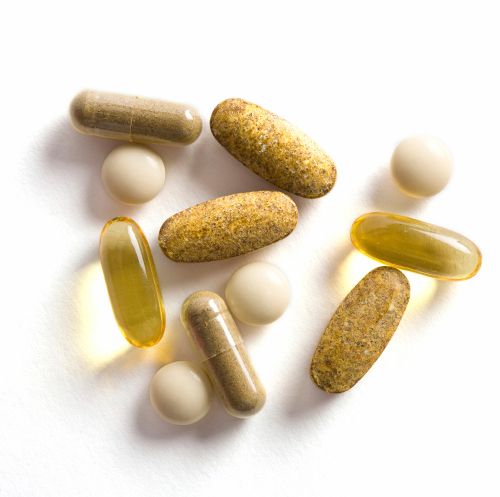Daily Phytosterol Consumption Could Reduce LDL Cholesterol and Save the EU Billions Per Year
Daily consumption of phytosterols by millions of adults with severe hypercholesterolemia could save the EU €5.3 billion per year in healthcare costs, according to new Frost & Sullivan analysis.
Photo © iStockphoto.com/pkline

Daily consumption of phytosterols by millions of adults with severe hypercholesterolemia could save the EU €5.3 billion per year in healthcare costs, according to new Frost & Sullivan analysis, “Healthcare Cost Savings of Phytosterol Food Supplements in the European Union.” The study was conducted on behalf of nonprofit trade group Food Supplements Europe (Brussels, Belgium) to determine what kinds of healthcare costs savings could be realized in the EU through phytosterol supplementation.
Hypercholesterolemia is the presence of high levels of LDL cholesterol in the blood and has been linked to cardiovascular disease (CVD). Phytostesterols, which are plant sterols and stanols whose molecules are very like cholesterol molecules found in humans, have been proven to reduce levels of LDL cholesterol. Frost & Sullivan researchers estimate that the costs of CVD-related hospital events to the EU healthcare system will be a whopping €1.328 trillion between 2016 and 2020, or €266 billion per year. In their analysis, Frost & Sullivan researchers estimated what the reduced cost burden would be if adults with hypercholesterolemia over the age of 55 supplemented with 1.7 g of phytosterols daily. They found that €26.5 billion over five years, or €5.3 billion per year, could be saved.
The World Health Organization’s (WHO) Global Health Observatory (GHO) calculates that hypercholesterolemia is more prevalent in Europe than anywhere else in the world, with 54% of the population over the age of the 25 diagnosed with hypercholesterolemia, and 20% with severe hypercholesterolemia. The results of this study are significant because, by the researchers’ conservative estimates, 31.1 million adults over the age of 55 across the EU are living with severe hypercholesterolemia. As a result, they are significantly more likely to experience a CVD-related hospital event.
This latest phytosterols report is the third in a series of Frost & Sullivan analyses commissioned by Food Supplements Europe, which is a trade group representing the food-supplements industry. The other two, which were also conducted with the aim of finding ways to cut healthcare costs in the EU through supplementation, were published in 2016 and February 2017. The first study found that daily consumption of 1,000 mg of omega-3 EPA plus DHA food supplementation in the EU could save €13 billion a year in healthcare costs, and the second explored the cost saving benefits of calcium plus vitamin D supplementation to avoid bone fractures in people with osteoporosis. The results of that study indicated potential healthcare cost savings of €3.96 billion per year.
Food Supplements Europe chair Ingrid Atteryd said in a press release: “A very clear picture is emerging of the significant economic and wellbeing benefits that could be achieved by encouraging more widespread food supplementation among those sections of the EU population at greatest risk of experiencing a CVD-attributed hospital event.”
HHS announces restructuring plans to consolidate divisions and downsize workforce
Published: March 27th 2025 | Updated: March 27th 2025According to the announcement, the restructuring will save taxpayers $1.8 billion per year by reducing the workforce by 10,000 full-time employees and consolidating the department’s 28 divisions into 15 new divisions.










